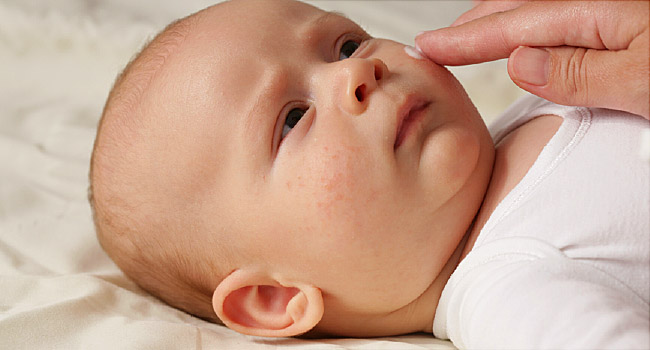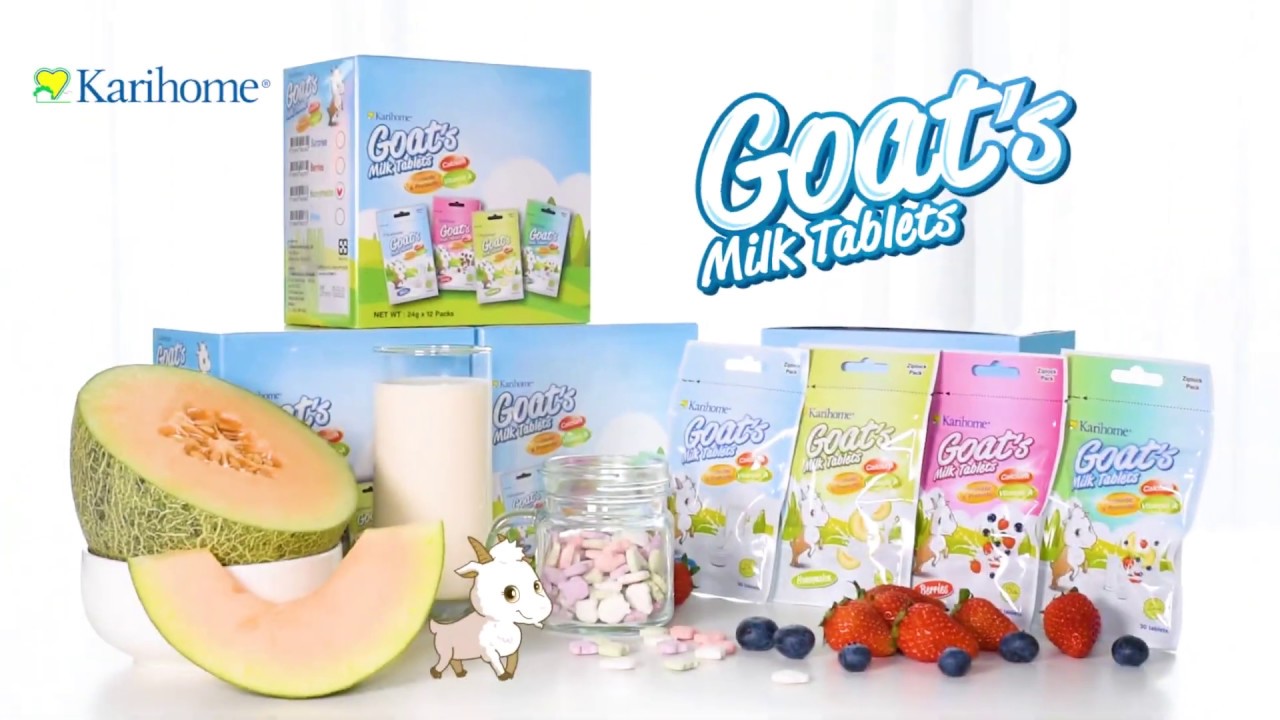Children with eczema have a tendency to get dry, itchy skin patches. The itch can be so awkward that it interferes with sleep, making your child feel sad. Plus, the rashes may be infected by scratching. Four common problems are typically treated by eczema treatments: dryness, itching, irritated skin (inflammation), and infection.
The disease should be treated so that your child feels better, but there is no proven remedy for eczema. There are several ways of helping your child prevent flare-ups of eczema.
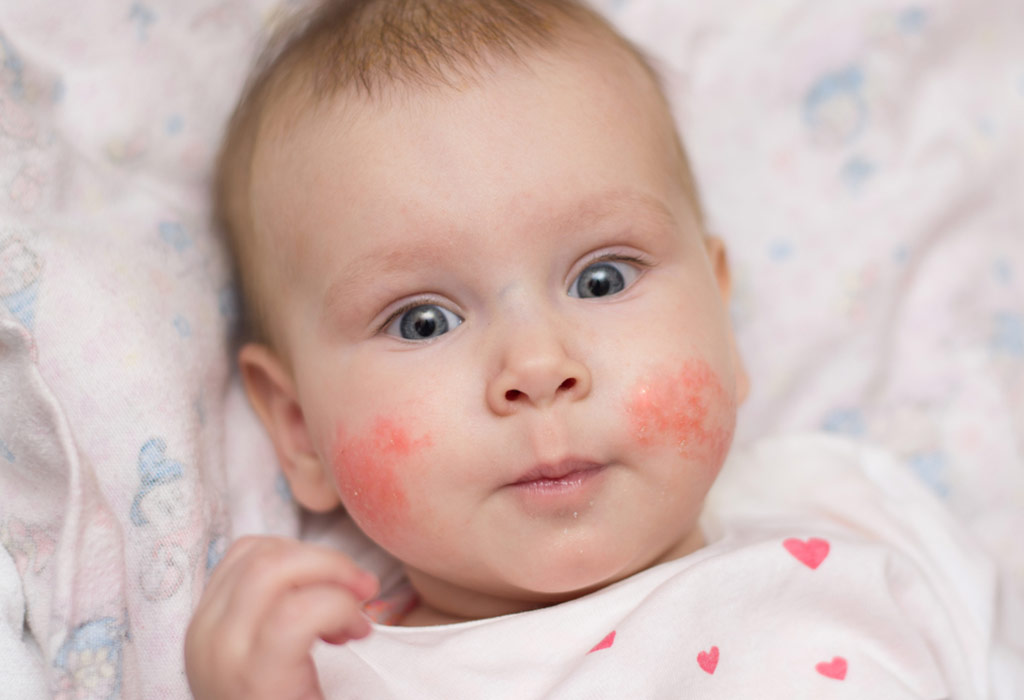
What is Eczema??
Eczema is an umbrella term for several skin conditions that cause areas to become red, itchy, and inflamed. Eczema in young children is usually the type called atopic dermatitis.
Eczema results from an immune system overreaction. Not one exact known cause exists. Alternatively, doctors think that many different things can contribute to it and that it’s most definitely a blend of genetic and environmental factors.
It is more likely that babies with a family history of asthma, allergies or eczema themselves will inherit it. Various allergens, bacteria, and even genetic anomalies and mutations provide hypotheses regarding the causes and triggers of eczema.
Goals for treatment.
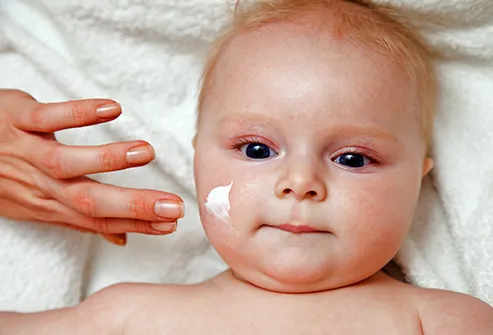
The four main targets for treating eczema, are:
Skincare and maintenance. This is most important because it will help to restore and maintain a healthy skin barrier, as well as avoid potential flare-ups from occurring.
Medications for anti-inflammatory skin. During a flare-up, these assist to reduce the inflammatory response. (For infants, they can not always be acceptable or needed.)
Control itching. Generally, rubbing raises the strength of the itch.
Triggers handle. The avoidance or control of stimuli helps decrease flare-ups.

Here are five ways you can handle your baby’s eczema at home, keeping the four priorities in mind.
1. Warm bath with moisturizer
One of the most important things you can do to treat and control eczema at home is to give your baby a quick, warm bath. It is typically helpful to have a daily warm bath for no more than 5 or 10 minutes, as long as you immediately add moisturizer to the baby’s skin after the bath.
In the bath, use lukewarm water. Keep away from any harsh or scented synthetic soaps or washing agents. Each child is distinct, so you should pay attention to how the skin of your child reacts to the frequency of bathing. Every other day, some babies can react better to baths.

2. Make use of an ointment
As compared to lighter moisturizing lotion, your baby can object to the greasy feeling of the skin ointment. However, studies have shown that skin ointments are more effective because they hold more moisture in the treatment of eczema. Thicker creams are also helpful.
As fragrances and preservatives can be irritating for babies with eczema, you can use the most natural formula available. Prescription creams have not been shown to be more effective in general than over-the-counter eczema moisturizers. Save your money and pick your budget-friendly moisturizing ointment or cream.
3. Identify your baby trigger
One of the most important things you can do with your baby’s eczema is to look for things that appear to cause or make your baby’s flare-ups worse in your environment. In your home, products could be causing or contributing to the problem.
In infants, objects that touch their skin are the most common causes. Environmental allergens such as mold or pollen can rarely be a cause. Infections and stress are other known factors that are rare in infants. For infants, common triggers are:
-Harsh detergents and soaps
-fragrances
-Fabrics for rough or nonbreathable clothes
-the sweat
-excess saliva
4.Prevent scratching.
Try to stop your child from scratching as much as possible since scratching can make the skin feel even more itchy. Scratching can also lead to open sores which can lead to skin infections. Keep your child’s nails cut short. Wearing cotton gloves at night can also help.
5. Apply a wet dressing.
If your baby has an especially serious flare-up of eczema, ask your pediatrician about wet dressing or wet wrap treatment. Under close medical supervision, this procedure is also used with prescription steroid cream.
The wrap helps ensure that topical treatments remain moist and that the skin is better absorbed.
How to add a dressing to the wet:
- Give your baby a bath, and dry the skin gently.
- Apply moisturizer or cream.
- With clean, warm water, wet gauze or cotton clothes and apply to the affected area.
- Use another light layer of dry clothing to cover the wet layer, and keep the dressing on for three to eight hours.
For 24 to 72 hours or overnight, you can continue applying the wet dressing maximum for a period of one week.
Often discuss it with your pediatrician before using wet wrap treatment.
Could Goat Milk Formula Help Baby Eczema?
There are many potential infant eczema treatments out there. But it turns out that goat milk formula may be the best baby eczema treatment on the market.
How, exactly, does goat milk formula help counter eczema in a child? In the first place, it all goes back to what causes eczema. Some kids, for instance, are not allergic to milk itself. Instead, they have a specific cow’s milk sensitivity. And when they are so allergic, eating such milk (or formula made from cow milk) can lead to eczema and other irritations.
Conversely, it may make a profound difference to replace cow’s milk with goat’s milk formula. Your baby will feel much happier when they no longer experience milk that causes their skin sensitivity.
Even if milk sensitivity isn’t the cause of your baby’s eczema, goat milk formula can still help out. That’s because such a formula is a good source of Omega-3 Fatty Acids. These serve as an anti-inflammatory, helping with eczema while also providing other benefits.
Now you know a bit more about how and why goat milk formula can have such a positive impact on baby eczema. On top of that, this kind of formula will help your baby out in many different ways.
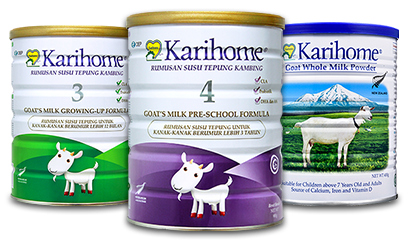
Karihome Goat’s Milk the best formula for your child.
Karihome goat’s milk is a fantastic quality approach to dairy for those who allergic to or having troubles with cow milks.
Goat’s milk is not only easier on the digestive system in children but in adults as well so you can enjoy the benefits with your children. Karihome provides milk formulas for children from 3 years old and adults. There is a specific formula for each different age group to ensure that your children’s nutritional needs are met.
Natural Nutrition
Goat milk contains a high level of nucleotides, sialic acid and taurine naturally which are vital for the health and well-being of children. Goat’s milk is also innately high in calcium which is the essential mineral for healthy bone growth.
Easier to Digest
Goat milk forms softer curds which can be digested more readily than dense cow milk curd. Goat milk can be digested about a third of time faster than cow milk. In addition to that, goat’s milk also contains natural CPP (Casein Phosphopeptides) which helps with mineral absorption.
Reduce Allergenic Burden
Goat’s milk contains lesser allergens than cow’s milk, thus the chance of getting an allergy reaction by goat’s milk consumer is lower. Many children who experienced itchy skin and rashes after drinking cow’s milk had a fewer and less severe reaction when they switched to goat’s milk.
It Improves Tummy Health
Goat milk can prevent the loss of the gastrointestinal tract barrier function. Great development and maintenance of gastrointestinal tract barrier function help to reduce the risk of getting gastrointestinal problems such as vomiting, diarrhoea and tummy upset.

Conclusion
In young children, eczema is a fairly common skin disorder, but it may be hard to work out the exact causes and triggers for your infant. To develop the right care plan, consult with your pediatrician. The good news is that when your child gets older, eczema usually gets weaker or goes away completely.



